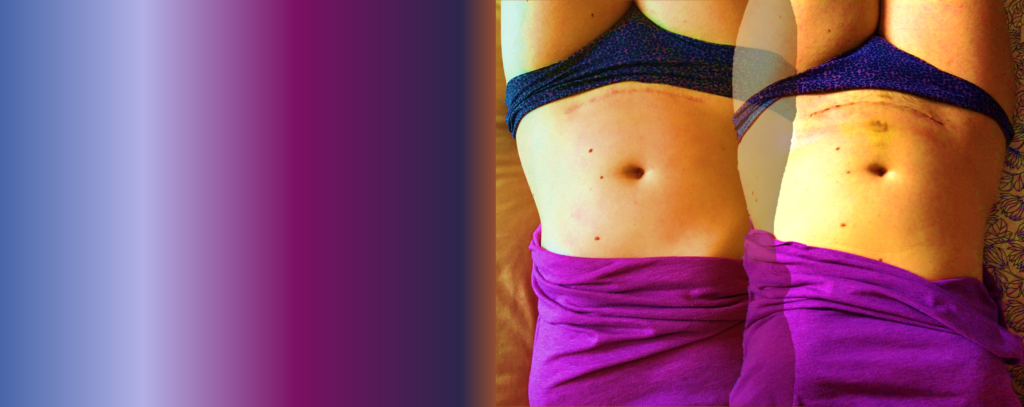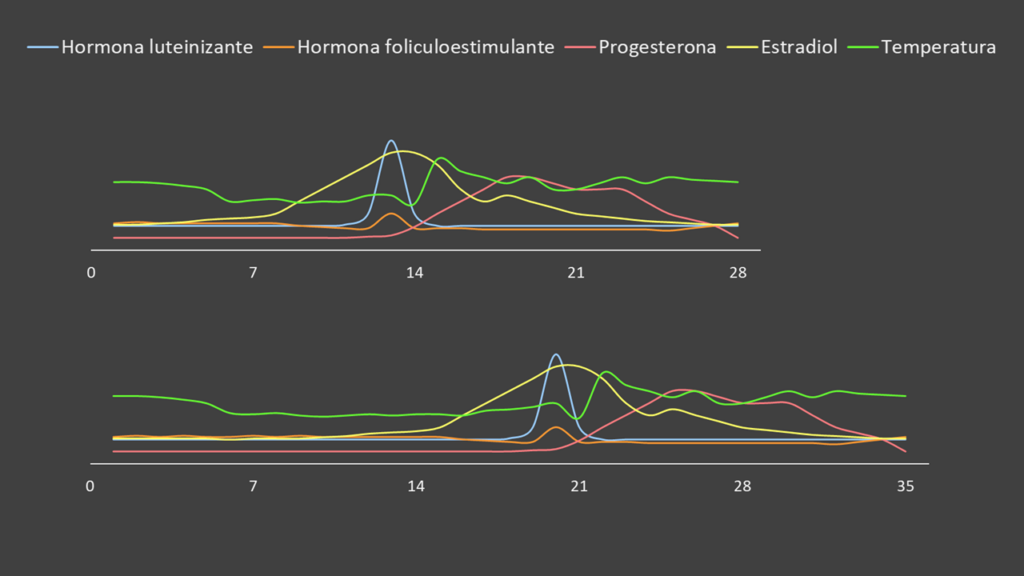
16. A new stage
It has already been seven months since the operation. It seems incredible. As if it were long ago yet recent at the same time. I was very aware yet at the same time I don’t remember it very well. I think the operation has gradually become something that feels like part of me. It feels like it is something that has already happened. Already left behind. The operation has changed me. I feel I am where I want to be within myself. Being aware of my menstruation, feeling a sense of closeness with my body. I feel I have the foundations set to carry on building, I have the tools and knowledge to help me when needed. I am no longer lost, or exhausted, or desperate. Or blind. I would even dare to say that I have the basics to guide other women, or menstruating individuals, if it were necessary. Although we are all different, I think an important part of the path is wanting to go down it, even though it is difficult and we are scared, having willpower and trust in the transformation process.
Since the operation my period has come six times. After reading the authors which I mentioned at the end of my last post (what we eat), I have started to take my basal body temperature in the morning to track my ovulation. I put the thermometer under my tongue when I wake up, before stretching, before speaking, before getting out of bed, before doing my breathing exercises, before anything. At first, I used to forget lots of days, now I rarely forget, and my temperature curves have almost no missing values. As I have polycystic ovary syndrome, it is important for me to know if I ovulate, because as Lara Bridensays, ovulating is what causes the hormones to be produced. Without ovulation there aren’t hormones, and without hormones, biology loses its balance.
As part of this tracking, I have also become more aware of the texture of my vaginal discharge and how it changes during the cycle and becomes more elastic and viscous at the time of ovulation. Before all of this, I had already realised that it wasn’t always the same, but I didn’t know how to interpret this and make a direct link with my hormonal state. I find it so interesting. Observing, understanding and interpreting. This knowledge gives me lots of confidence and relief.
The other thing I have started to do occasionally in the shower is putting my middle finger into my vagina to touch my cervix and familiarise myself with its position and texture, which also changes throughout the cycle. The first few times I tried to find it I thought that my finger wasn’t long enough to reach it and maybe my cervix was simply too high up. But the doubt, and I think the frustration of the uncertainty, together with some curiosity, made me carry on trying until one day I finally found it! Firm and damp. Round like a fingertip without a nail, and I was able to notice the hole which leads to the uterine cavity. Since then, it is no longer hard to find and I have realised that it isn’t too high, I just didn’t really know how to identify it or know for definite if it was what I was touching or not. It’s these small steps, small movements, small drops of water that have been calming the thirst for knowledge that I had. Small drops of water that make me sprout and feel empowered.
As well as now being able to track when I ovulate, another revelation I have had in this learning process, and which I think has been a key element in this new self-knowledge, is that when my period arrives late, it isn’t because the period itself is late, instead it is because my ovulation is late. There are two weeks between the ovulation and the period. My cycles are irregular, and always last longer than 28 days. When I am more regular and I feel better, they usually last five weeks. Before reading those books, I thought that you always ovulated halfway through your cycle, which is only true if your cycle is textbook and lasts 28 days, because halfway is 14, and coincides with the two weeks.
Before the operation they did tests several times to understand the state of my hormonal health and see if I was ovulating. These tests detect progesterone levels in the blood and are done on day 21 according to the medical manual, which is one week after textbook ovulation, when progesterone levels have already risen. In a 35-day cycle, like my best one, ovulation occurs on day 21, so instead of doing the tests on day 21, when there wouldn’t yet be any progesterone to detect, it would have made much more sense to do them on day 28. But of course, I didn’t know this back then, and this wasn’t discussed in the consultation. Which means, if your cycle isn’t textbook, the medical diagnosis of your hormone function can be totally mistaken.
To illustrate all this a bit better, I have tried to make a diagram using arbitrary units, which compares a textbook menstrual cycle (upper) with a 35-day cycle (lower), like the best of mine. I wanted to represent the blood level of the main hormones involved in the menstrual cycle and the basal body temperature, which has a sudden decrease at the time of ovulation and then continues with its marked upward trend.

If I had to have these tests done again, I’m sure that this self-knowledge would help the doctors to carry out a better diagnosis of my hormonal function. Of course, I’m presuming that I would be faced with doctors who are prepared to listen to me, which isn’t always the case as I have already experienced. And I ask myself why these tools of self-knowledge aren’t more widespread and accessible. Why don’t we talk about this more? Something which is so basic and easy to implement and understand. Why don’t we learn how to familiarise ourselves with the rhythms of our bodies when we are teenagers? It could help us so much to understand how we are, to take control and to feel confidence.
Tracking my ovulation by taking my temperature helps me to not only know how my body is doing but also to connect the biology with my emotions. For example, I have realised that when I ovulate late, my mood is worse, I feel more anxious and sensitive. And the later it is, the worse these emotions get. And once ovulation arrives, the hormones arrive, and it goes away. I feel light, awake, and calm again. Hormones have a central role within our emotional state, and when you become aware of them it’s much easier to observe yourself impartially and realise that how you are feeling is related to where you are in your cycle. This is especially helping me to rationalise and be kinder to myself. I feel more secure because I understand what is happening to me, and I can then smile and wait until I ovulate to turn the tables. After, once I have ovulated, I know that I will have my period in two weeks. And then start over.
I think that, to put it simply, I feel the stage of the operation has been left behind and I am entering a new stage of intimacy with my own body, being aware of my menstruation. I am excited to start this new relationship with myself, and I think that many more interesting discoveries are to come. I am going to continue learning about and become increasingly closer with my female self.
[…] o menos certeros, que me hacían sentir que estaba yendo a buen ritmo en la dirección correcta (una nueva etapa). En esta, que ha sido la mayor mudanza de nuestras vidas, todos esos cambios aún siguen en una […]